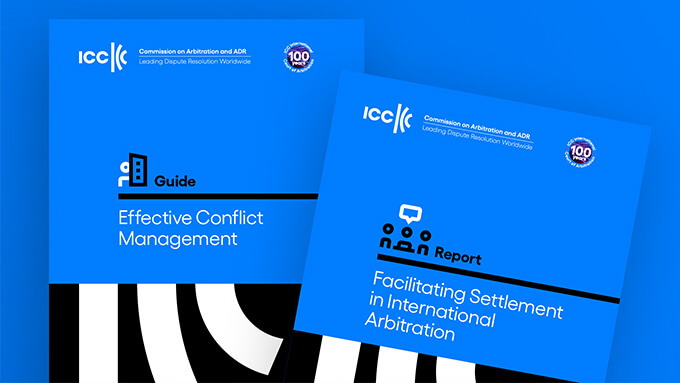The Landesbank Decision
Introduction
It is well known that following a decision of the Court of Justice of the European Union (“CJEU”), problems arose related to arbitration of intra-EU disputes, and particularly arbitration under the Energy Charter Treaty (“ECT”).
The ECT, which entered into force in 1998, provides a multilateral framework for energy cooperation with an aim to protect foreign investments.[1] It also sets out a dispute resolution mechanism dealing with disputes between participating states, as well as disputes between investors and host states.
The source of the problems are the Achmea judgment and the Komstroy decision, both of which have been addressed in previous newsletters.[2]
Put briefly, in Achmea in 2018, the CJEU ruled that the investor-state arbitration clause in the Netherlands-Slovakia Bilateral Investment Treaty was incompatible with EU law. The importance of this decision is that it dealt with the compatibility with EU law of the arbitration provision in a bilateral investment treaty between two EU member states.
Following this decision, uncertainties arose in terms of the scope of the decision – more particularly whether the decision applied only to intra-EU bilateral investment treaties, or extended to multilateral investment treaties where EU member states are also a party. An important example of the latter is the ECT.
In Komstroy, the CJEU found that an arbitration clause in a multilateral treaty, such as the ECT, could not be applied to intra-European investment disputes. This resulted in EU-based investors reviewing their investments to ensure they had the possibility of obtaining and enforcing future arbitral awards.
Despite these decisions, tribunals tend to reject intra-EU jurisdictional objections.[3] One of the first decisions that dealt with the effect of the Achmea decision was an International Centre for Settlement of Investment Disputes (“ICSID”) case based on a claim against Spain: Landesbank Baden-Württemberg and others v Kingdom of Spain (“Landesbank”) – a case explained below. After Komstroy, on 11 November 2021, following from an application made by Spain, the tribunal declined to reopen this decision, which found EU law did not prevent it from hearing an intra-EU claim under the ECT, as reported.[4] This newsletter deals with Spain’s application as well as the findings of the Tribunal in its decision related to the jurisdictional objection.
Decision on the “Intra-EU” Jurisdictional Objection
A tribunal rendered its decision in Landesbank on 25 February 2019.[5] This was a case brought by four German banks (namely Landesbank Baden-Württemberg, HSH Nordbank AG, Landesbank Hessen-Thüringen Girozentrale and Norddeutsche Landesbank-Girozentrale (collectively the “Claimants”)) against Spain. The Claimants maintained that, in reliance on what they saw as a commitment from Spain, had made an investment, between 2006 and 2011 they financed 78 renewable energy plants through 225 loans with an overall value of approximately 1.76 billion euros.[6]
The Claimants complained that Spain subsequently enacted substantial changes to the special regime, culminating in its abolition, as a result of which there was a serious negative impact on their investments. They claimed that Spain’s actions violated its obligation)s under various articles of the ECT, which were rejected by Spain.[7]
Among other objections, Spain raised a jurisdictional objection based on Achmea claiming that intra-EU BITs were incompatible with EU law. The Claimants maintained that the jurisdiction of the arbitration Tribunal was derived from the ECT and the ICSID Convention.
In its decision, in addressing the question as to whether or not ECT conferred jurisdiction to itself, the tribunal dealt with the following: (i) principles of interpretation, (ii) the provisional interpretation of Article 26 of the ECT (iii) whether it is contrary to EU law for an EU member state to make an offer of arbitration under the ECT to an investor from another EU member state, (iv) the effect on the interpretation of Article 26 of the ECT of a prohibition under EU law of arbitration in an intra-EU dispute and (v) whether EU law takes priority over the ECT for the purposes of determining the jurisdiction of the tribunal.
The tribunal concluded that it was of the view that there was no conflict between EU law and a finding that Article 26 of the ECT constitutes an offer of arbitration by an EU member state to an investor from another EU member state.[8] Yet, the tribunal did not ignore the fact that the EC and the majority of the EU member states have reached a different conclusion. Nevertheless, the tribunal found that if EU law was incompatible with the Tribunal’s interpretation of Article 26 ECT, then the tribunal should accord priority to the ECT, the legal instrument which is the basis for the Tribunal’s jurisdiction.[9]
The tribunal rejected Spain’s jurisdictional objection and decided that the case would proceed to the next phase.
Following Komstroy, on 1 October 2021, Spain filed a request for reconsideration of the tribunal’s decision of 25 February 2019. On 18 October 2021, the Claimants filed their observations on Spain’s request and the tribunal rendered its decision on 11 November 2021.[10]
Spain requested the tribunal to reconsider its decision arguing that, in light of Komstroy, the decision was “manifestly wrong.”[11]
In reviewing Spain’s application, the tribunal declined to reopen the case as it considered that, in addition to the decision being res judicata, the Komstroy case did not alter its conclusions, as international law principles prevail, even if intra-EU ECT related arbitration is contrary to EU Law. The tribunal found that “regardless of whether the Komstroy decision amounted to a new fact, it would not have decisively affected the outcome.” [12]
Conclusion
It is important for investors to consider that, under current circumstances, they face issues relating to the enforcement of their final awards. There is a risk that the relevant EU member states may seek to challenge the registration of final awards, yet this risk is lower for arbitrations not seated in the EU.
- A consolidated version of the Energy Charter Treaty and Related Documents is available at https://www.energycharter.org/process/energy-charter-treaty-1994/energy-charter-treaty/
- Slovak Republic v. Achmea B.V., Case C-284/16, Available at: https://www.italaw.com/sites/default/files/case-documents/italaw9548_0.pdf.; Republic of Moldova v Komstroy LLC, Case C-741/19, ECLI:EU:C:2021:655. Available at: https://eur-lex.europa.eu/legal-content/en/TXT/?uri=CELEX:62019CJ0741; Birengel, Tilbe, Impact of the Achmea Judgment on Investment Arbitration, Erdem & Erdem Newsletter October 2018, Available at: http://www.erdem-erdem.av.tr/en/insights/impact-of-the-achmea-judgment-on-investment-arbitration and Birengel, Tilbe, Komstroy Decision: End of an Era for Intra - EU ECT Arbitration or Not?, Erdem & Erdem Newsletter September 2021, Available at: http://www.erdem-erdem.av.tr/en/insights/komstroy-decision-end-of-an-era-for-intra-eu-ect-arbitration-or-not
- Stefan, Florian: “Intra-EU Disputes under the Energy Charter Treaty: Quo Vadis?”, Kluwer Arbitration Blog, August 2018. Available at: http://arbitrationblog.kluwerarbitration.com/2019/08/18/intra-eu-disputes-under-the-energy-charter-treaty-quo-vadis
- Perry, Sebastian: “Spain fails to reopen intra-EU objection after Komstroy”, Global Arbitration Review, December 2021. Available at: https://globalarbitrationreview.com/spain-fails-reopen-intra-eu-objection-after-komstroy
- ICSID Case No. ARB/15/45. Available at: https://www.italaw.com/cases/7586
- Ibid, para. 30
- Ibid, para. 31-33
- Ibid, para 155.
- Ibid, para 194.
- https://icsid.worldbank.org/cases/case-database/case-detail?CaseNo=ARB/15/45
- Sebastian.
- Sebastian.
All rights of this article are reserved. This article may not be used, reproduced, copied, published, distributed, or otherwise disseminated without quotation or Erdem & Erdem Law Firm's written consent. Any content created without citing the resource or Erdem & Erdem Law Firm’s written consent is regularly tracked, and legal action will be taken in case of violation.
Other Contents

Emergency arbitration addresses the need for interim protection before the arbitral tribunal is constituted in institutional arbitrations. Arbitral institutions establish short timeframes to ensure parties can obtain interim relief quickly. For example, the International Chamber of Commerce (“ICC”) requires that the emergency...

International arbitration remains the preferred mechanism for resolving complex cross-border disputes. Yet despite its advantages—neutrality, enforceability, flexibility—arbitration is frequently criticized for being too slow, too expensive, and too procedurally heavy. Often, parties proceed through hearings and...

For arbitral awards rendered in international commercial arbitration to produce legal effects in foreign jurisdictions, they must be subjected to proceedings for “recognition” and “enforcement.” This process is governed by the New York Convention as well as by the provisions of the Law on Private International Law...

Arbitrability, the determination of whether a specific subject matter can be resolved through arbitration, constitutes a fundamental aspect of arbitration within the scope of international commercial dispute resolution. This concept draws a delicate balance between party autonomy—a fundamental principle of arbitration...

The recognition, enforcement, and annulment of foreign court and arbitral awards in Türkiye are processes in which public policy emerges as one of the most critical criteria for review, both in theory and in practice. The Court of Cassation decisions determine the direction of case law regarding the scope and...

As is well known, the action for annulment of objection is a special type of lawsuit regulated under Article 67 of the Turkish Execution and Bankruptcy Law No. 2004 (“EBL”). The primary objective of this action is to nullify a debtor’s objection to execution proceedings. Despite its procedural function of facilitating...

On 16 December 2024, the London Court of International Arbitration (“LCIA”) released its third batch of challenge decisions covering the period from 22 July 2017 to 31 December 2022. The LCIA has also issued a detailed commentary that identifies key legal themes and analytical trends, offering practitioners...

The International Chamber of Commerce (“ICC”) has published its report on the dispute resolution statistics for 2023 (“Report”) , shedding light on the evolving landscape of international arbitration...

Syndicated loans undoubtedly hold a significant position among global financing models. In 2023 alone, 3,655 syndicated loans were provided to companies in the US, with their total value reaching USD 2.4 trillion...

Preliminary attachment refers to the temporary seizure of a debtor's assets to secure a creditor's claim. While it serves as a vital instrument for safeguarding the rights of creditors, it is subject to specific and stringent conditions under Turkish law to prevent any potential misuse...

One of the most important reasons for parties to choose arbitration is the opportunity to freely choose their arbitrators. This freedom granted to the parties also distinguishes arbitration from proceedings before state courts, where the parties are deprived of the power to determine the judges who will conduct the...

The 6th Civil Chamber of the Court of Cassation ruled on October 12, 2022, that national courts have jurisdiction over objections to provisional measures in international arbitration disputes...

The declaration of intent to resolve disputes through arbitration is the fundamental constituent element of an arbitration agreement. To speak of a valid arbitration agreement, the parties' intention to arbitrate must emerge in a way that leaves no room for dispute...

In the wake of the evolving dynamics of commercial transactions, the Netherlands Arbitration Institute Foundation (NAI) announced new arbitration rules . 2024 NAI Arbitration Rules are in force as of 1 March 2024 and will be applicable on proceedings filed on or after this date...

With the global shift to online activities, domain names play a crucial role in identifying businesses. It is more common than ever for a domain name to be registered that is confusingly similar to a trademark or service mark...

The ICC Commission on Arbitration and ADR (“Commission”) published a new guide and report with the aim to increase awareness on alternative dispute resolution (“ADR”) mechanisms to prevent disputes and strengthen the relationship between all stakeholders.The Guide on Effective Conflict Management...

Mergers and Acquisitions (“M&A”) are restructuring of companies or assets through various types of financial transactions, such as mergers, acquisitions, purchase of assets, or management acquisitions. This Newsletter article covers M&A disputes being solved before arbitral tribunals.

In the context of arbitration practice, the principle of revision au fond means that the courts can not examine the merits of a dispute when reviewing an arbitral award. This principle is most commonly encountered in set aside and enforcement proceedings. An arbitral award is evidence of the parties’ willingness...

Under Turkish law, parties may agree on the settlement of disputes that have arisen or may arise, regarding the rights that they can freely dispose of, by arbitration. However, disputes which are not subject to the will of parties, such as the disputes relating to in rem rights of immovables, bankruptcy law...

On 4 September 2020, a research project “Does a Right to a Physical Hearing Exist in International Arbitration?” was launched by an International Council for Commercial Arbitration (“ICCA”) taskforce. Due to the Covid-19 pandemic, many arbitration hearings were held online. Many institutional rules...

Dubai International Arbitration Center amended its Arbitration Rules on 25 February 2022. The 2022 Arbitration Rules were published on 2 March 2022 and came into effect on 21 March 2022. The Rules will be applied to arbitrations that are filed after 21 March 2022; unless parties agree otherwise...

In the aftermath of the Achmea decision, controversies on intra-EU arbitrations continue. Most recently, the Paris Court of Appeal has annulled two arbitral awards rendered against Poland. Meanwhile, the Higher Regional Court of Berlin has refused to declare that an Irish investor’s ICSID claim...


Under Turkish law, the legal remedy that can be applied against arbitral awards is an annulment action. Law on International Arbitration No. 4686 (“IAL”) finds its application area in arbitration proceedings where Turkey is the place of arbitration...

Arbitration in corporate law contains controversial elements in many respects, especially the issue of arbitrability. Even in legal systems where these disputes are considered to be arbitrable, uncertainties remain on whether an arbitration clause can be included in the articles of...





Arbitration has benifited from a great increase in the use of technology which has directly effected the conduct of proceedings. More particularly, with digitalization, the way that we conduct arbitration proceedings has been changed to reflect the current needs of parties, with an aim of increasing time...

































































